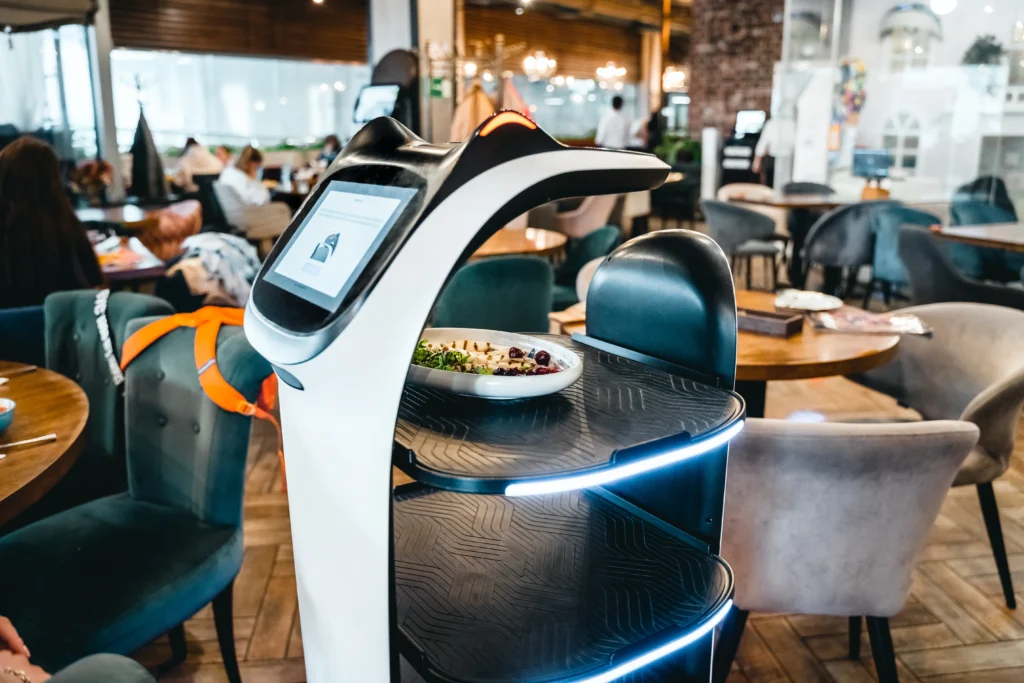Travel automation is no longer a futuristic idea. It is reshaping the everyday reality of corporate hospitality. As companies seek faster, smarter, and more cost-efficient ways to run meetings, incentives, conferences, and events, automation tools are threading through every stage of the travel experience: from booking and check-in to in-stay services and post-trip analytics.
This shift is affecting not just guest-facing touchpoints but the operational backbone of hotels, venues, and travel managers, creating new possibilities for personalization, efficiency, and sustainability.
What We Mean By Travel Automation
When we talk about travel automation we mean the use of software, AI-driven systems, and connected devices to perform tasks that were once manual: automated bookings and itinerary changes, predictive pricing and demand forecasting, self-service check-ins and smart room controls, and conversational agents that answer routine questions.
Travel automation also extends to back-of-house functions such as predictive maintenance, staff scheduling, inventory management, and data-driven revenue management. Together these technologies allow corporate travel programs to scale more reliably while delivering consistent experiences to travelers and event attendees. Adlittle
How Travel Automation Transforms The Guest Experience
At the front line of corporate hospitality, automation and AI in hotels are redefining how guests interact with properties. Chatbots and virtual concierges provide 24/7 responses to reservations, amenity requests, and local recommendations, reducing wait times and freeing staff to handle complex, high-touch needs.
Personalization engines analyze past stays and preferences to tailor room amenities, dining suggestions, and meeting setups, producing experiences that feel bespoke even at scale. Industry research and trend reports indicate that these guest-facing AI tools are widely adopted, with hotels increasingly routing routine inquiries through automated systems to improve speed and consistency. Future Today Strategy Group
Operational Gains Behind The Scenes
The value of automation in the tourism industry is perhaps most visible in the back office, where predictive analytics and automation streamline processes that used to cost time and money. Predictive maintenance systems anticipate equipment failures and schedule repairs before they disrupt operations, while automated procurement and inventory platforms ensure supplies are replenished without manual oversight.
Dynamic pricing tools and machine-learning revenue managers respond in real time to demand signals, boosting RevPAR and optimizing corporate group rates. Consultants and sector reports underscore these gains, pointing to automation as a key lever for improving margins and service reliability across hospitality and travel businesses. Adlittle
Sustainability and Smarter Resource Use
Travel automation is also proving a powerful ally for sustainability goals. AI systems can optimize energy use by adjusting HVAC and lighting to occupancy patterns, reduce food waste through smarter kitchen forecasting, and even suggest lower-emission travel options when planners build corporate itineraries.
Projects that use AI to refine routing or operational choices have shown measurable reductions in fuel use and waste, helping travel programs meet corporate ESG commitments while saving costs. By embedding environmental metrics into decision engines, travel automation helps companies make greener choices without adding administrative burden. Reuters
Real-World Implementations And Industry Momentum
Major hospitality and technology providers are racing to package automation into practical solutions for corporate clients and event planners. Vendor and industry collaborations are bringing integrated platforms that combine booking, expense, meeting-room management, and on-site services into single dashboards, simplifying the planning of complex MICE programs.
Industry surveys and technology roadmaps highlight adoption across chains and independent properties alike, signaling that automation is moving from pilot projects to mainstream operational practice. These reports also point to contactless check-in, IoT room controls, and AI-driven guest engagement as immediate priorities for hotel investment in 2025. Skift+1
Balancing Automation With Human Touch
While the benefits of travel automation are significant, the hospitality sector faces the mindful task of blending efficiency with empathy. Automated systems handle predictable transactions well, but human staff remain essential for building relationships, managing nuanced guest needs, and providing hospitality warmth that machines cannot replicate.
The best corporate hospitality programs are those that design automation to augment human capabilities — freeing teams from repetitive tasks so they can focus on high-value interactions that matter most to VIPs, speakers, and event hosts.
Challenges And Considerations For Corporate Travel Teams
Implementing travel automation requires careful attention to data privacy, system interoperability, and workforce transition. Corporate travel managers must ensure that AI models are trained on accurate, ethically sourced data and that privacy safeguards meet regulatory and client standards.
Interoperability between TMC platforms, property management systems, and event-tech stacks is critical to avoid silos that undermine the “connected trip” promise. Finally, organizations should plan for reskilling and redeployment to ensure staff adapt to new responsibilities as automation takes over routine work.
The Future Outlook
Looking ahead, travel automation will continue to deepen its role across corporate hospitality. We can expect more advanced personalization driven by generative AI, tighter integration between travel and HR/finance systems for seamless policy compliance, and broader use of automation to support sustainability reporting for corporate travel programs. As automation becomes more pervasive, its strategic importance will shift from cost savings to enabling superior, measurable experiences for travelers and event participants.
Conclusion
Travel automation is no longer an optional upgrade; it is a strategic foundation for modern corporate hospitality. By combining AI in hotels, integrated back-office automation, and sustainability-minded decision tools, travel programs can deliver consistent, personalized experiences while improving operational resilience. The path forward is one of balance: deploy automation to eliminate friction, but preserve human service where it creates distinct value.
At Aster Travel, we embrace these advances to build corporate travel and hospitality solutions that are efficient, empathetic, and future-ready — helping clients harness the full promise of automation in the tourism industry.











